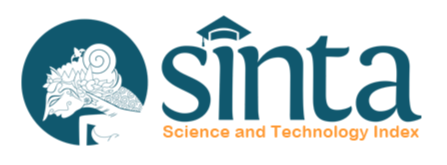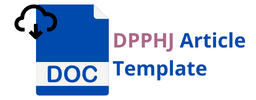The Behaviour of Health Faculty Students Responding to Hoaxes Related Covid-19 on Social Media
DOI:
https://doi.org/10.12928/dpphj.v15i2.3992Keywords:
Health Hoax, Infodemic, Covid-19, Public Health Faculty StudentsAbstract
Background: Hoax is still a problem in the era of information disclosure and technological advances currently. News or information containing hoax related to Covid-19 affects the handling effort of the Covid-19 pandemic. This research aimed to describe the behavior of health faculty students in responding to the hoaxes associated with Covid-19 on social media. Method: This research was a descriptive study. The sampling technique used was random sampling. The samples were 384 students who were required to complete the questionnaire. The statistical test used was descriptive statistical analysis. Results: The results obtained in this study were that respondents considered Facebook as the most widely used social media for spreading hoaxes (68%). Respondents thought that cross-checking the accuracy and validity of information is a step that should be performed when receiving hoax news (85%). Respondents stated that they dug up information through official government websites regarding the handling of Covid-19 to check the statement's truth (65%). Some respondents did not cross-check the news or information related to Covid-19 due to the assumption that someone else had done it. Conclusion: Most respondents have cross-checked news or information about Covid-19. Extracting information through official government websites on handling Covid-19 has also been taken to check the accuracy and validity of the statement.References
2. Hauptman R. A Surfeit of Hoaxes. J Infor Ethics. 2020;29(2):9321. doi: 10.2307/JIE.29.2.8
3. Syahrani R, Boer K. Student’s Digital Literacy Abilities Against Hoaxes (A Case Study of University Students in East Kalimantan). ICLSSE. 2021;2018. doi: 10.4108/eai.10-11-2020.2303454
4. Vosoughi S, Roy D, Aral S. The Spread of True and False News Online. Science. 2018;359(6380):1146–51. doi: https://doi.org/10.1126/science.aap9559
5. Douglas KM, Sutton RM, Cichocka A. The Psychology of Conspiracy Theories. Curr Dir Psychol Sci. 2017 Dec;26(6):538–42. doi: https://doi.org/10.1177/0963721417718261
6. Romer D, Hall K, Jamieson.Conspiracy Theories as Barriers to Controlling the Spread of COVID-19 in the U.S. Soc Sci Med. 2020;263. doi: https://doi.org/10.1016/j.socscimed.2020.113356
7. Biddlestone M, Green R, Douglas KM. Cultural Orientation, Power, Belief in Conspiracy Theories, and Intentions to Reduce the Spread of COVID-19. Br J Soc Psychol. 2020;59(3):663–73. doi:10.1111/bjso.12397
8. Tasnim S, Hossain MM, Mazumder H. Impact of Rumors and Misinformation on COVID-19 in Social Media. J Prev Med public Heal. 2020;53(3):171–4. doi: https://dx.doi.org/10.3961%2Fjpmph.20.094
9. Pragholapati A. Covid-19 Impact on Students. EdArXiv Prepr. 2020;6:1–6. doi: https://doi.org/10.17605/OSF.IO/NUYJ9
10. Kunjana Rahardi R. Building Critical Awareness of Corona Virus-Related News: Cyber-Pragmatic Study of COVID-19 Hoaxes on Social Media. Int J Adv Sci Technol. 2020;29(6):5398–409. http://sersc.org/journals/index.php/IJAST/article/view/19608
11. Li T, Liu Y, Li M, Qian X, Dai SY. Mask or No Mask for COVID-19: A Public Health and Market Study. PLoS One [Internet]. 2020;15(8 August):1–17. doi: http://dx.doi.org/10.1371/journal.pone.0237691
12. Matz SC. Personal Echo Chambers: Openness-To-Experience is Linked to Higher Levels of Psychological Interest Diversity in Large-Scale Behavioural Data. J Pers Soc Psychol. 2021; doi: https://psycnet.apa.org/doi/10.1037/pspp0000324
13. Allcott H, Gentzkow M, Yu C. Trends in the Diffusion of Misinformation on Social Media. Res Polit. 2019;6(2). doi: https://doi.org/10.1177%2F2053168019848554
14. Awaliyah AN, Hartati T, Tursiva E. Digital Literation in Increasing Reading Interest and Overcoming Hoax News from Social Media in Basic School Students. 3rd Int Conf Elem Educ (ICEE 2020). 2020;3(November). doi: http://proceedings2.upi.edu/index.php/icee/article/view/1441
15. Susilo ME, Afifi S, Yustitia S. Hoax as a Reflection on the Low Digital Literacy in Indonesia Muhammad. Int Conf Soc Econ Educ Humanit [Internet]. 2019;9:233–237. doi: http://dx.doi.org/10.5220/0009100201650174
16. van Prooijen J. Why Education Predicts Decreased Belief in Conspiracy Theories. Appl Cogn Psychol. 2017;31(1):50–58. doi: https://doi.org/10.1002/acp.3301
17. Khan ML, Idris IK. Recognise Misinformation and Verify Before Sharing: A Reasoned Action and Information Literacy Perspective. Behav Inf Technol. 2019 Dec;38(12):1194–1212. doi: https://doi.org/10.1080/0144929X.2019.1578828
18. Larson HJ. Blocking Information on COVID-19 Can Fuel the Spread of Misinformation. Nature. 2020;306. doi: https://doi.org/10.1038/d41586-020-00920-w
19. Sude DJ, Pearson GDH, Knobloch-Westerwick S. Self-Expression Just A Click Away: Source Interactivity Impacts on Confirmation Bias and Political Attitudes. Comput Human Behav. 2021;114. doi: http://doi.org/10.1016/j.chb.2020.106571
20. Leng Y, Zhai Y, Sun S, Wu Y, Selzer J, Strover S, et al. Misinformation During the COVID-19 Outbreak in China: Cultural, Social and Political Entanglements. IEEE Trans Big Data. 2021;7(1):69–80. doi: https://doi.org/10.1109/TBDATA.2021.3055758
21. Lazer DMJ, Baum MA, Benkler Y, Berinsky AJ, Greenhill KM, Menczer F, et al. The Science of Fake News. Science (80- ). 2018 Mar;359(6380):1094 LP – 1096. doi: http://science.sciencemag.org/content/359/6380/1094.abstract
22. Evanega S, Lynas M, Adams J, Smolenyak K, Insights CG. Coronavirus Misinformation: Quantifying Sources and Themes in the COVID-19 ‘Infodemic.’ JMIR Prepr. 2020; doi: https://preprints.jmir.org/preprint/28253.
23. Organization WH. Risk Communication and Community Engagement Readiness and Response to Coronavirus Disease (COVID-19): Interim Guidance, 19 March 2020. World Health Organization; 2020. https://apps.who.int/iris/handle/10665/331513
24. Gazendam A, Ekhtiari S, Wong E, Madden K, Naji L, Phillips M, et al. The “Infodemic†of Journal Publication Associated With the Novel Coronavirus Disease. JBJS. 2020;102(13). doi: 10.2106/JBJS.20.00610
25. Zarocostas J. How to Fight An Infodemic. Lancet. 2020 Feb;395(10225):676. doi: https://doi.org/10.1016/S0140-6736(20)30461-X
26. Setiawan B, Pawito P, Hastjarjo S. Hoax Amidst The Covid-19 Pandemic. ICSSED. 2020;10(November). doi: 10.4108/eai.4-8-2020.2302399
27. Herner M. Perfect Top of the Evidence Hierarchy Pyramid, Maybe Not So Perfect: Lessons Learned by A Novice Researcher Engaging in A Meta-Analysis Project. BMJ evidence-based Med. 2019;24(4):130–142. doi: https://doi.org/10.1136/bmjebm-2018-111141
28. Hidayat ML, Listiawati V. The Urgency of Parents Digital Literacy to Prevent Their Children From Harmful Effects of Smart-Mobie Devices. Proceeding Int Conf Child-Friendly Educ. 2018;4:618–622. doi: http://hdl.handle.net/11617/10255
29. Desta TT, Mulugeta T. Living with COVID-19-Triggered Pseudoscience and Conspiracies. Int J Public Health. 2020/06/29. 2020 Jul;65(6):713–4. doi: https://doi.org/10.1007/s00038-020-01412-4
30. Yacoubian HA. Scientific Literacy For Democratic Decision-Making. Int J Sci Educ. 2018;40(3):308–327. doi: https://doi.org/10.1080/09500693.2017.1420266
31. Astuti YD. Digital Literacy Competence of Indonesian Lecturers on Analysis Hoax In Social Media. Libr Philos Pract. 2021;2021(March). doi: https://digitalcommons.unl.edu/libphilprac/5234
Downloads
Additional Files
Published
Issue
Section
License
Authors transfer the copyright and grant the Disease Prevention and Public Health Journal right of first publication with the work simultaneously licensed under a Creative Commons Attribution License (CC BY-SA 4.0) that allows others to share (copy and redistribute the material in any medium or format) and adapt (remix, transform, and build upon the material) the work for any purpose, even commercially with an acknowledgement of the work's authorship and initial publication in Disease Prevention and Public Health Journal. Authors are able to enter into separate, additional contractual arrangements for the non-exclusive distribution of the journal's published version of the work (e.g., post it to an institutional repository or publish it in a book), with an acknowledgement of its initial publication in Disease Prevention and Public Health Journal. Authors are permitted and encouraged to post their work online (e.g., in institutional repositories or on their website) prior to and during the submission process, as it can lead to productive exchanges, as well as earlier and greater citation of published work (See The Effect of Open Access).

This work is licensed under a Creative Commons Attribution-ShareAlike 4.0 International License.







